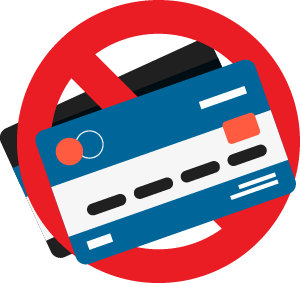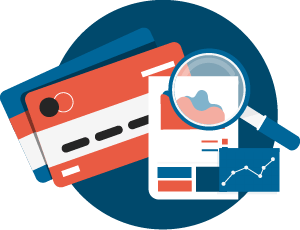Menu
What is a credit card chargeback? What is the process for getting a chargeback on a debit card? When Can You Get a Chargeback on a Credit Card or Debit Card?

Requests for debit and credit card chargebacks may arise from fraud, identity theft, or the illicit use of the card or card number. This is considered unauthorized use, and the cardholder isn’t liable. In these cases, a credit card chargeback is fairly straightforward.
Disputes also arise regarding the bill itself. Genuine mistakes happen. Your monthly statement may include a charge for services or products you did not order, services or products you did order but never received or items the merchant, for whatever reason, did not provide.
From time to time consumers may also notice an inadvertent overcharge for a legitimate purchase. Contact the merchant immediately if you discover this sort of problem. Keep in mind, however, that billing error rules grant debit or credit card chargebacks only for specific disputes.
Fees most customers wouldn’t notice in the fine print are referred to as “gray charges.” These typically appear in small print usually in the “Terms and Conditions.” Some examples are automatic renewals, mysterious subscriptions, cost creep, or “free” products that wind up costing money.
There may be a symbolic or minimal initial charge, but after a period of time, you may be paying for something you didn’t want. If so, you enjoy legal protection and can usually get a credit card chargeback.
You can also get a chargeback on a credit card if merchants try to refuse a refund when one is justified. The merchant may have not delivered your items or provided a service. During the COVID-19 crisis, many people sought credit or debit card chargebacks when they ordered plane tickets, and flights were canceled because of the pandemic.


You can improve your chances of getting a credit card chargeback if you:
A professional, experienced, and competent firm such as Rapidcoin may offer a far higher value, and even better odds of success, than many law firms. This is because our entire business model has been built around best practices and connections with credit card networks and hundreds of banks.
You can dispute a charge that appears on your monthly bill by issuing a credit card chargeback request. You should do so immediately if it is an expenditure that you did not authorize. You may submit your notification by phone, not only in writing. Check the rules of the card company and be mindful of the debit and credit card chargeback time limit
A credit card network is required to investigate your claim within a reasonable period of time once it receives your request. The ensuing investigation can include an analysis of the signature on the credit card slip, a review of a relevant police report or a comparison of your address with that of the merchant.
If, however, your dispute pertains to a charge that you authorized, but you didn’t receive the goods or services as promised, the debit and credit card chargeback process becomes more complicated.
First of all, your bank’s procedures for dealing with such a situation are less streamlined and straightforward. In addition, your banker may be less familiar with the intricate rules pertaining to such disputes. Just as one example, your credit card chargeback time limit can vary considerably based on the details of your particular case. Simply leaving out one detail may mean all the difference between debit and credit card chargeback success and failure.
That’s why consulting with MyChargeBack experts will help your claim get results. Our experts have the tools, connections, and strategies for debit and credit card chargeback success.
Rapidcoin advises cardholders throughout the entire lifecycle of complex card-not-present chargebacks. We know how to dispute a debit card or credit card charge, and we will provide you with a free no-commitment initial consultation. Contact us for more details..
